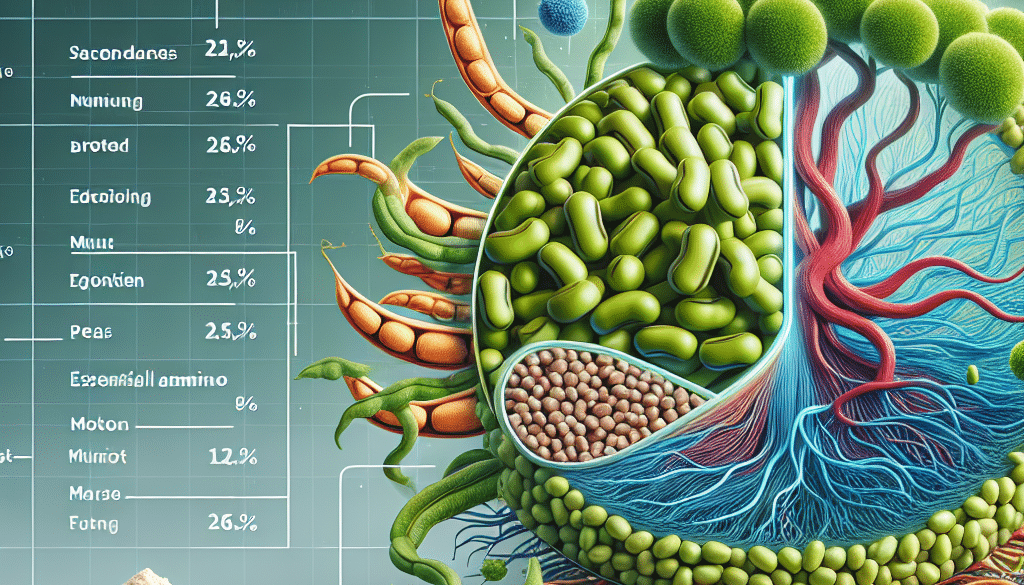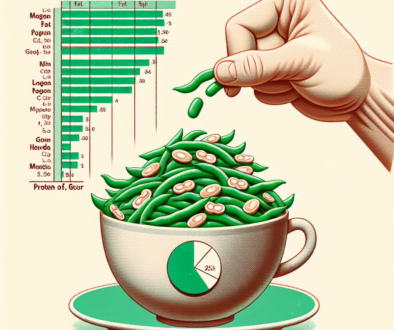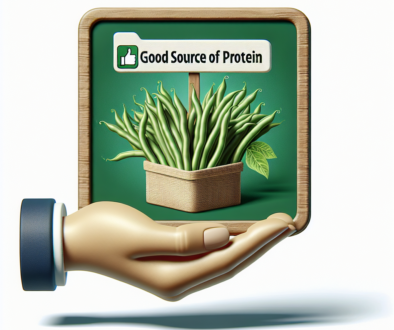Is Mung Bean Protein A Complete Protein?
-
Table of Contents
- Mung Bean Protein: Is It a Complete Source of Nutrition?
- Understanding Complete Proteins
- The Nutritional Profile of Mung Bean Protein
- Is Mung Bean Protein Complete?
- Benefits of Mung Bean Protein
- Case Studies and Research
- How to Include Mung Bean Protein in Your Diet
- Conclusion: Mung Bean Protein as a Viable Protein Source
- Discover ETprotein’s High-Quality Mung Bean Protein Products
Mung Bean Protein: Is It a Complete Source of Nutrition?

Protein is a crucial macronutrient required for the building, maintenance, and repair of tissues in the body. A complete protein is one that provides all of the essential amino acids that the body cannot synthesize on its own. With the rise of plant-based diets, there has been a growing interest in alternative protein sources. Mung bean protein is one such source that has gained popularity. But the question remains: Is mung bean protein a complete protein?
Understanding Complete Proteins
Before delving into mung bean protein, it’s important to understand what makes a protein “complete.” Proteins are made up of amino acids, some of which are essential because the body cannot produce them. A complete protein contains all nine essential amino acids in sufficient quantities. These amino acids include:
- Histidine
- Isoleucine
- Leucine
- Lysine
- Methionine
- Phenylalanine
- Threonine
- Tryptophan
- Valine
Animal proteins like meat, dairy, and eggs typically contain all nine essential amino acids, making them complete proteins. However, many plant-based proteins are deficient in one or more essential amino acids, thus considered incomplete.
The Nutritional Profile of Mung Bean Protein
Mung beans are a type of legume that have been cultivated for thousands of years. They are a staple in many Asian cuisines and are known for their versatility and health benefits. Mung beans are not only rich in protein but also contain fiber, vitamins, and minerals.
When it comes to protein content, mung beans offer about 24 grams of protein per 100 grams when cooked. This makes them one of the more protein-rich plant foods available. But the critical question is whether this protein is complete.
Is Mung Bean Protein Complete?
Research indicates that mung bean protein is indeed a complete protein. It contains all nine essential amino acids necessary for human health. However, like many plant proteins, mung bean protein may have lower amounts of certain essential amino acids, such as methionine and tryptophan, compared to animal proteins.
Despite this, the overall amino acid profile of mung bean protein is quite favorable. It is particularly rich in leucine, lysine, and isoleucine, which are critical for muscle repair and growth. This makes mung bean protein an excellent option for those looking to maintain or increase muscle mass, such as athletes or bodybuilders.
Benefits of Mung Bean Protein
Mung bean protein offers several health benefits, including:
- Digestibility: Mung bean protein is easily digestible, making it a suitable protein source for people with sensitive digestive systems.
- Hypoallergenic: It is less likely to cause allergic reactions compared to common allergens like soy or dairy.
- Sustainability: Mung beans have a lower environmental footprint than animal-based proteins, requiring less water and land to produce.
- Versatility: Mung bean protein can be used in various forms, such as flour, protein isolates, and concentrates, making it easy to incorporate into different diets and recipes.
Case Studies and Research
Several studies have highlighted the potential of mung bean protein as a sustainable and healthful protein source. For instance, research published in the “Journal of Agriculture and Food Chemistry” found that mung bean protein isolates show promise as a functional ingredient in food production due to their solubility and thermal stability.
Another study in the “International Journal of Molecular Sciences” explored the antioxidant properties of mung bean protein hydrolysates, suggesting that they could have protective effects against oxidative stress-related diseases.
How to Include Mung Bean Protein in Your Diet
Incorporating mung bean protein into your diet is relatively simple. Here are some ideas:
- Use mung bean flour in baking to add a protein boost to bread, muffins, or pancakes.
- Add cooked mung beans to salads, soups, and stews for added texture and nutrients.
- Snack on roasted mung beans for a crunchy, protein-rich treat.
- Experiment with mung bean protein powders in smoothies or protein bars for a convenient option.
Conclusion: Mung Bean Protein as a Viable Protein Source
In conclusion, mung bean protein is a complete protein that provides all the essential amino acids needed for optimal health. Its benefits extend beyond its amino acid profile, offering digestibility, hypoallergenic properties, and sustainability. Whether you’re a vegan, vegetarian, or simply looking to diversify your protein sources, mung bean protein is a nutritious and versatile option to consider.
Discover ETprotein’s High-Quality Mung Bean Protein Products
If you’re interested in exploring the benefits of mung bean protein, ETprotein offers a range of high-quality protein products. Their mung bean protein is characterized by a neutral taste, non-GMO, and allergen-free attributes, making it an excellent choice for various applications. Whether you’re in the food and beverage industry or looking for dietary supplements, ETprotein’s offerings can meet your needs.
About ETprotein:
ETprotein, a reputable protein and L-(+)-Ergothioneine (EGT) Chinese factory manufacturer and supplier, is renowned for producing, stocking, exporting, and delivering the highest quality organic bulk vegan proteins and L-(+)-Ergothioneine. They include Organic rice protein, clear rice protein, pea protein, clear pea protein, watermelon seed protein, pumpkin seed protein, sunflower seed protein, mung bean protein, peanut protein, and L-(+)-Ergothioneine EGT Pharmaceutical grade, L-(+)-Ergothioneine EGT food grade, L-(+)-Ergothioneine EGT cosmetic grade, L-(+)-Ergothioneine EGT reference grade and L-(+)-Ergothioneine EGT standard. Their offerings, characterized by a neutral taste, non-GMO, allergen-free attributes, with L-(+)-Ergothioneine purity over 98%, 99%, cater to a diverse range of industries. They serve nutraceutical, pharmaceutical, cosmeceutical, veterinary, as well as food and beverage finished product distributors, traders, and manufacturers across Europe, USA, Canada, Australia, Thailand, Japan, Korea, Brazil, and Chile, among others.
ETprotein specialization includes exporting and delivering tailor-made protein powder and finished nutritional supplements. Their extensive product range covers sectors like Food and Beverage, Sports Nutrition, Weight Management, Dietary Supplements, Health and Wellness Products, and Infant Formula, ensuring comprehensive solutions to meet all your protein needs.
As a trusted company by leading global food and beverage brands and Fortune 500 companies, ETprotein reinforces China’s reputation in the global arena. For more information or to sample their products, please contact them and email sales(at)ETprotein.com today.












